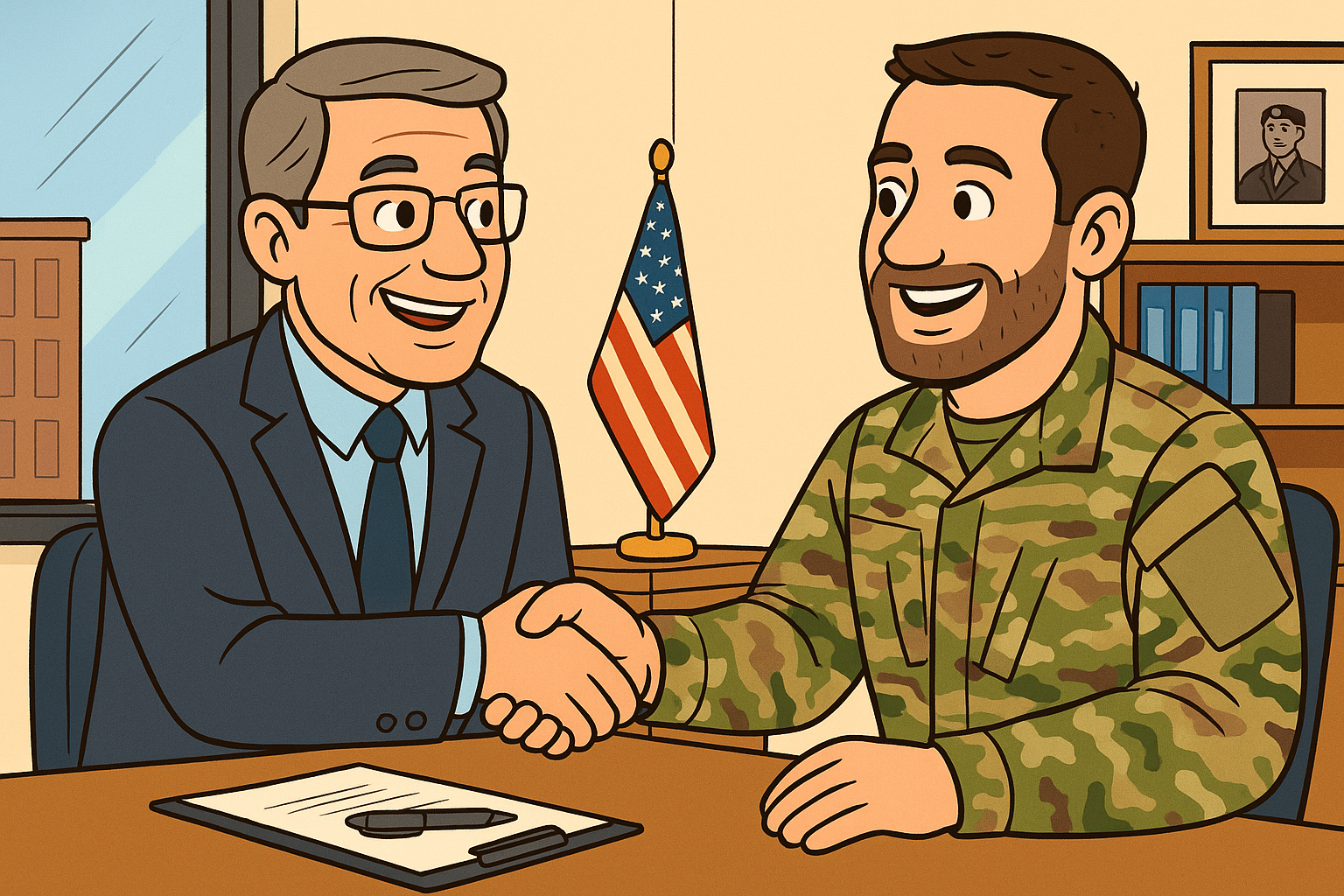Every year, more than 200,000 U.S. service members transition from military to civilian life—bringing with them leadership experience, technical skills, and a deep sense of mission. Yet despite these strengths, many employers still struggle to translate military backgrounds into civilian job qualifications.
For HR professionals and business leaders, hiring veterans isn’t just an act of goodwill—it’s a smart business strategy. Companies that successfully integrate veterans report higher retention rates, stronger team cohesion, and leadership that performs under pressure. But tapping into this talent pool requires more than posting a “Veterans Welcome” sign. It demands intentional recruiting, onboarding, and support strategies.
The Business Case: Why Veterans Make Outstanding Employees
Veterans bring a blend of skills and values that directly align with what employers need in today’s fast-moving industries:
- Leadership under pressure: Military experience fosters decisive leadership and adaptability—qualities critical in business environments facing constant change.
- Team-first mentality: Veterans understand the power of teamwork, communication, and accountability.
- Technical and operational expertise: Many veterans possess advanced training in logistics, cybersecurity, engineering, and operations management.
- Work ethic and discipline: Veterans consistently demonstrate reliability, persistence, and a mission-driven approach.
According to Military.com (2024), companies with strong veteran-hiring initiatives see measurable improvements in productivity and culture. Veterans’ ability to lead and adapt makes them valuable assets across industries, from construction to technology to finance.
Employer Best Practices: What Works in Veteran Hiring
Leading employers are proving that with the right strategies, hiring veterans can be both impactful and efficient. Some of the most effective approaches include:
- Dedicated Veteran Hiring Programs
Companies like Amazon, Boeing, and JPMorgan Chase have established veteran hiring pipelines that align military skill sets with civilian roles. Dedicated recruiters trained in military translation can identify transferable experience often hidden behind rank or jargon.
- Mentorship and Onboarding Support
Mentorship programs—pairing new veteran hires with company mentors or fellow veterans—help bridge cultural gaps and improve retention. The SHRM Foundation reports that veteran mentorship initiatives reduce turnover by up to 30%.
- Translating Military Experience into Civilian Terms
Successful employers use tools like the Military Occupational Specialty (MOS) translator to help HR teams understand how military skills fit business needs. For example, a logistics officer’s background may translate directly into supply chain management or operations roles.
Challenges Employers Still Face
Despite progress, many companies still encounter barriers in hiring and retaining veterans:
- Language barriers: Military resumes often contain jargon unfamiliar to civilian recruiters.
- Cultural adjustment: The military’s structured environment differs greatly from the more flexible nature of corporate workplaces.
- Unconscious bias: Some employers misunderstand how military service translates to leadership and creativity.
As Military Money (2024) notes, employers who fail to bridge these gaps risk missing out on a disciplined, diverse, and highly capable talent pool.
How Employers Can Improve Veteran Hiring Efforts
For HR leaders and recruiters looking to build stronger veteran programs, consider these key recommendations:
- Train recruiters and hiring managers to understand military backgrounds and rank structures.
- Build partnerships with veteran organizations, military transition offices, and online job boards like Hire Heroes USA or DAV (Disabled American Veterans).
- Create a veteran employee resource group (ERG) to foster inclusion and provide feedback.
- Highlight career pathways, not just entry-level roles, to show veterans long-term growth opportunities.
- Use skills-based hiring rather than relying solely on civilian experience titles.
These steps not only expand your talent pipeline but also demonstrate authentic commitment to those who’ve served.
FAQ
Q: Why should companies prioritize veteran hiring?
A: Veterans offer proven leadership, discipline, and resilience—qualities that directly enhance performance and workplace culture.
Q: What’s the biggest mistake employers make when hiring veterans?
A: Overlooking candidates due to unfamiliarity with military terminology or undervaluing experience that doesn’t fit civilian job titles.
Q: How can smaller companies compete with large corporations in hiring veterans?
A: By partnering with local veteran organizations, offering mentorship, and emphasizing career growth and purpose-driven work.

